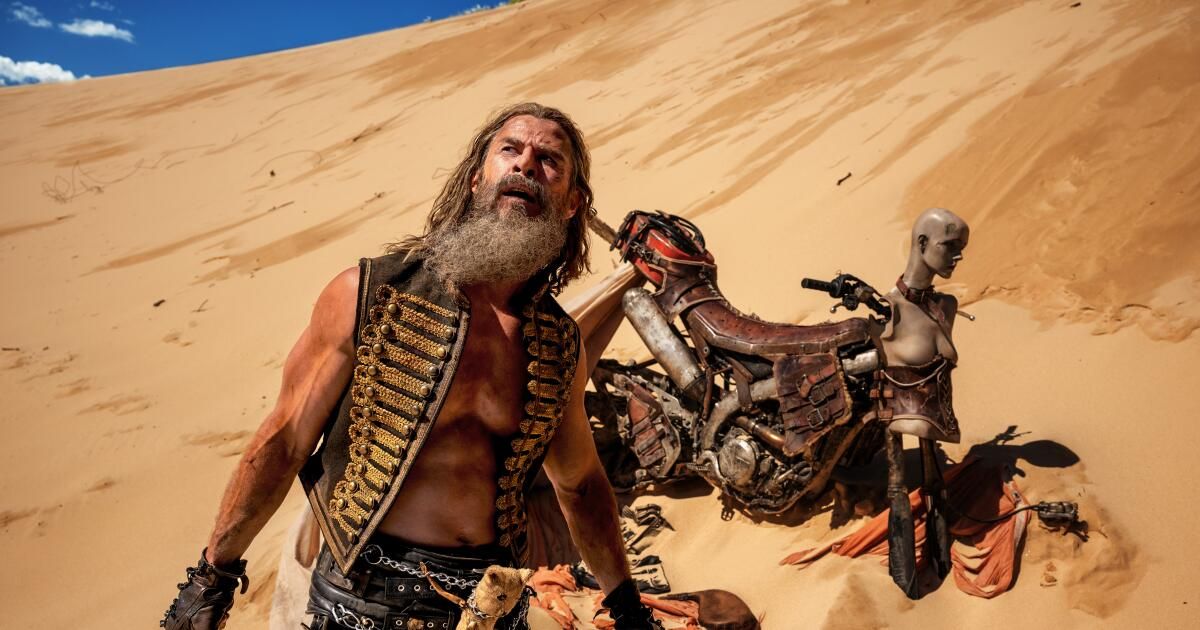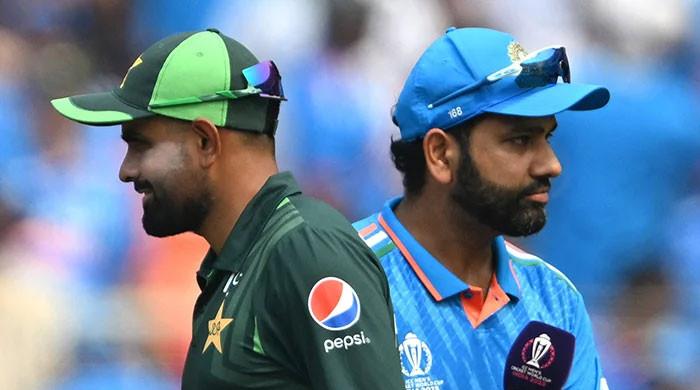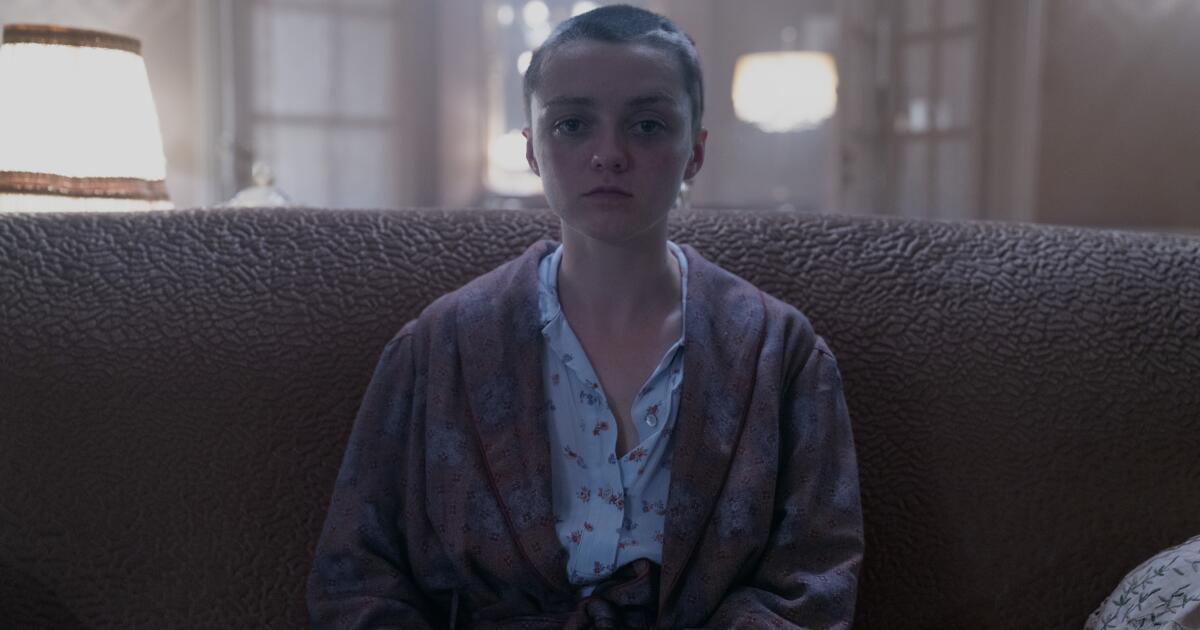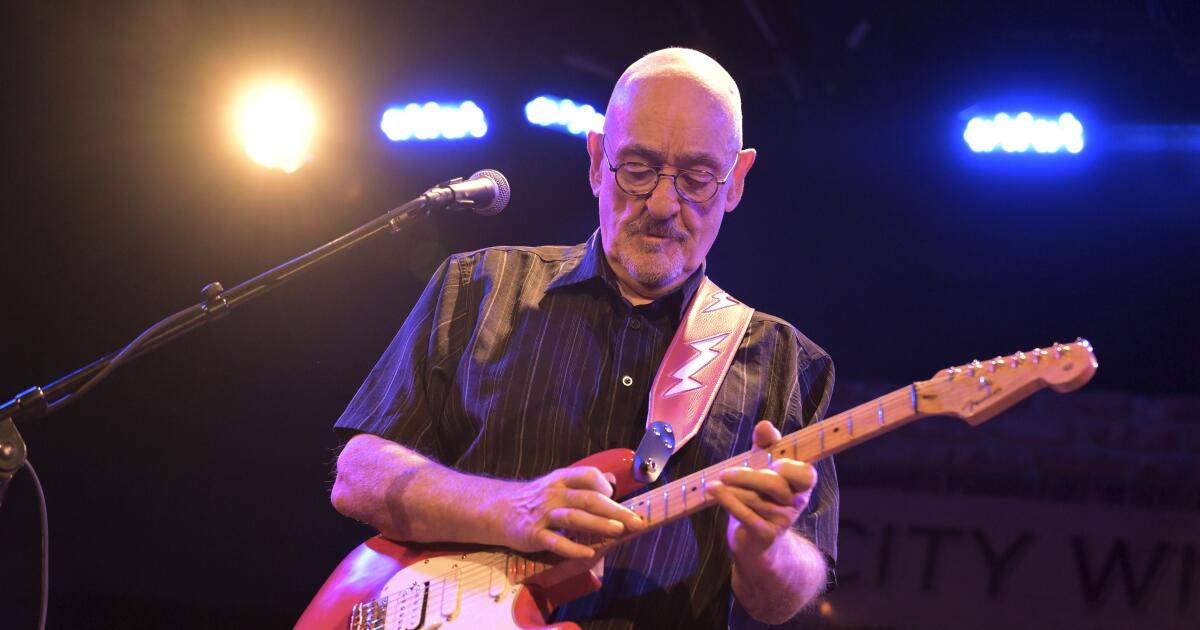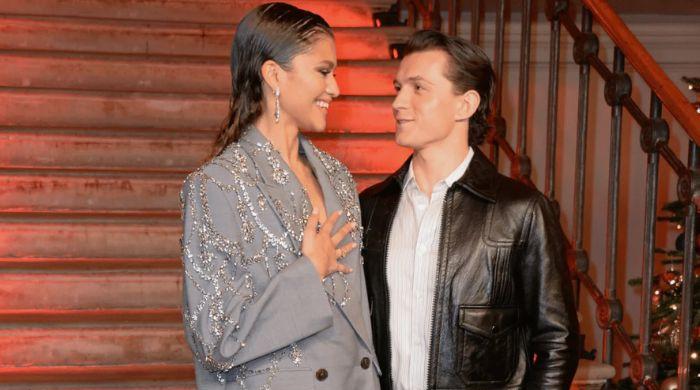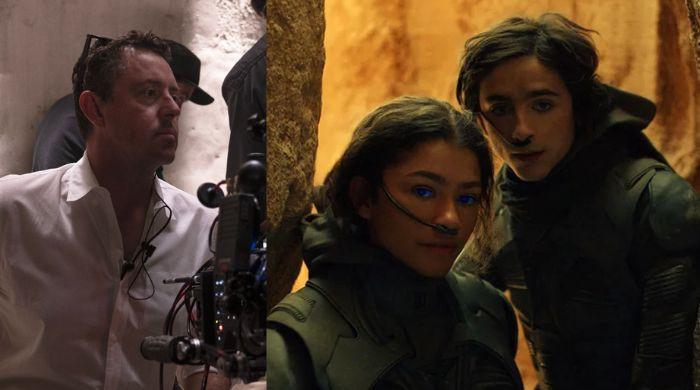After days of darkness from morning to mid-afternoon, Memorial Day bloomed bright and early over Los Angeles; the clouds were undoubtedly swept away by the powerful current of sighs, moans and complaints generated by the disappointing weekend box office.
It turns out that Hollywood executives do believe in magic. Somehow they thought that forcing six-month strikes by writers and actors last year would be costless for this year's summer movie season.
That in 2023, with the film industry still recovering from the COVID-19 shutdown, it would be perfectly fine to allow writing and production to come to a standstill again. Especially if it meant saving some money in the short term and canceling some ill-advised deals while people with multimillion-dollar salaries tried to figure out what to do with all these damn streaming services they rushed to create.
Meanwhile, outside the multibillion-dollar bubble, delays, particularly for big-budget films, disrupted this summer's slate and left theaters in the lurch. However, everyone seems surprised. shocked, discover that this has real-life implications for ticket sales. This was the lowest Memorial Day box office in nearly 30 years: What went wrong?
Leaving aside the broader philosophical question: If the studios that make movies don't care if months go by without movies being made, why should the general public suddenly move on just because there's a long weekend? — you have to ask yourself about the problem of reasonable expectations.
Like in Hollywood not having them.
I don't know what bean-counting genius thought that “The Fall Guy,” a sweet but high-energy romantic comedy based on a somewhat successful early '80s TV series, could pass for Marvel's kind of early blockbuster. Hollywood. has increasingly taken advantage of summer ticket sales. I also don't understand the magical thinking that generated such extraordinary expectations on a holiday weekend anchored by “Furiosa: A Mad Max Saga,” a prequel to a nearly 10-year-old film and the latest in a 30-year-old franchise. and “The Garfield Movie,” which is based on a cartoon that appears in newspapers and reached its peak cinematic popularity 20 years ago.
In theaters, “Furiosa” and “Garfield” joined “Kingdom from the Planet of the Apes,” which managed to dominate its May 12 opening weekend by having absolutely no competition, and John Krasinski “If”, which seems to be having success. That's fine, mainly because no one burdened him with self-destructively high estimates.
Honestly, when I looked at this weekend's lineup I felt like I was experiencing a time-space glitch: If only “Mad Max,” “Garfield,” “Planet of the Apes” and even “The Fall Guy” were still playing , Had my life happened? Was a “Billion Dollar Woman” movie showing anywhere? A “Love American Style” on the big screen.
I'm as nostalgic as the next not-quite-Boomer/not-quite-Generation in a multiplex version of Pottersville, where everything is as it was just a little bit different.
For the record, my husband and I chose “Furiosa,” which was pretty much how I felt after leaving; as Joshua Rothkopf of The Times wrote: “Survival takes the fun out of it.” (While I'm aware of the implications of the climate crisis, between this, “Dune: Part Two,” and even parts of “The Fall Guy,” there's too much sand flying around. But maybe that's just me.)
Even without the strike, this summer's box office was destined to be a bit of a disappointment: You can't capture the glorious “the movies are back” flash of last year's “Barbenheimer” in a bottle. But by forcing strikes, the studios ensured that it would be much worse. As in “set the industry back at least an entire year and reignite all the problems and obstacles that the pandemic had intensified” worse.
Once again, industry observers complain about the rising cost of tickets and concessions, the shorter time between theatrical release and streaming, the glut of content provided by streaming services, and the habit imposed by the pandemic of simply staying home.
Add to this the difficulty of marketing movies when traditional television commercials have disappeared with linear television, and of moving to a personalized digital world where the greatness of cinema is compressed into a window on a palm-sized screen. the hand that can be discarded with the movement of a finger.
Is it any wonder that nowadays we get half an hour of trailers before any movie? (And even that doesn't work because assigned seating makes it very easy for viewers to skip previews.)
Knowing what is playing, when and where has become an increasingly difficult task.
Not long ago, people could open a newspaper like The Times and find movie advertisements, with lists of where each movie was showing, along with voluminous listings sections. Now, in this DIY digital age, potential audience members can easily do a “near me” search, but they need to know which movies are actually designed to do this. (And they need to know quickly, because movies usually leave theaters after a few weeks.)
As a member of the Times entertainment team, I would certainly love to see the return of listings and the ads that pay for them, but that doesn't seem to be in anyone's future.
Neither do price cuts at box offices and sales counters, where a family of four can easily spend more than $100 (although for regular moviegoers, AMC and Regal passes provide significant savings).
But as “Barbenheimer” showed, people will get off their couches, look for parking and buy popcorn if the movies make it worth their while. And the only thing this post-strike moment offers is a way to figure out how to do it better.
The current squeeze among streaming services could offer movies a chance to return to the zone of new and varied content that television has dominated for the last decade, but only if studios start taking more risks with new and varied content.
Another “Planet of the Apes,” “The Garfield Movie” and a “Mad Max” prequel (even one that premieres, to mixed reviews, at Cannes) don’t register as new and varied content.
Neither will “Inside Out 2,” “Bad Boys: Ride or Die,” “A Quiet Place: Day One,” “Deadpool and Wolverine” and “Despicable Me 4,” although many predict these will put more butts in the air. -Seats conditioned as summer progresses.
Long criticized for their diminishing artistic returns, franchise films have become a box office staple: serialized storytelling, i.e. television, for the big screen. And as with the old television model, studios are increasingly tying success to a very small viewing window. Opening weekend has become the cinematic equivalent of a pilot, and those films that don't do well in their first two weekends are often considered flops, with all the attendant bad press.
Meanwhile, the film industry has almost entirely ceded the kinds of stories once told in mid-budget movies (which often had shorter opening weekends but longer staying power) to television.
Now, as the television industry, disrupted by streaming, finds a way to move forward (perhaps moving to more traditional, long-form models, sitcoms and procedurals), it may be time for the film industry make fewer high-risk blockbusters and more mid-sized films. budget movies.
Even with the recent closure of numerous movie theaters in Southern California and across the country, there are still many seats to fill. The go-go megaplex boom of the late '90s and early '00s created lounges the size of small airports, with lounges sometimes housing more than two dozen screens. In recent years, many of those screens show the same four or five movies; If one or two of those films don't find a large audience, there will be many empty seats that could be filled by films that are not blockbusters, perhaps made by television writers, producers and actors now madly looking for work.
Unrealizable thoughts, to be sure, but regardless of how Hollywood decides to do it, the pressure of dragging millions of people to theaters over the course of two or three days to see one or two movies must be relieved. Sequel, prequel, reboot, or (gasp) original concept, not every movie should be forced to gross $500 million, or even half of its total budget, on opening weekend to be considered a hit.
“The Fall Guy,” which was quickly dubbed a harbinger of doom for this summer's box office, is approaching the $150 million mark in global sales, despite moving to streaming. It's not a huge success for a movie with a budget of $138 million, but it's not a failure either. With its unusual combination of romantic comedy and big, expensive fight/chase scenes, the problem may lie more with the film than with moviegoing status. Setting it up as a trial balloon for the summer of 2024 didn't do it any favors; those who didn't see it almost immediately after its release were greeted with headlines announcing not only its failure but also the pall it could cast over the future of movies for all eternity.
That's a lot for Ryan Gosling and Emily Blunt.
Six months of strikes will cost studios, movie theater owners and advertisers a lot of money; There was never a way around it, no matter what the Association said. of Film and Television Producers had to say during the negotiations. If studio executives were willing to lose their share of that money for a chance to reset the industry, then they'd better start resetting it. But expecting a “Mad Max” prequel and a “Garfield” sequel to somehow save the day is a much bigger failure than “The Fall Guy.”

